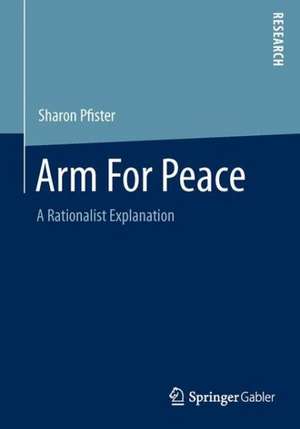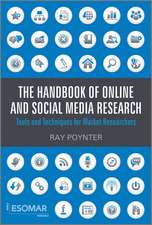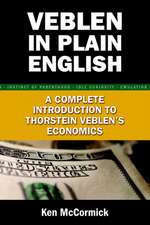Arm For Peace: A Rationalist Explanation
Autor Sharon Pfisteren Limba Engleză Paperback – 23 ian 2014
Preț: 378.92 lei
Nou
Puncte Express: 568
Preț estimativ în valută:
72.51€ • 77.53$ • 60.45£
72.51€ • 77.53$ • 60.45£
Carte tipărită la comandă
Livrare economică 18 aprilie-02 mai
Preluare comenzi: 021 569.72.76
Specificații
ISBN-13: 9783658039523
ISBN-10: 3658039523
Pagini: 159
Ilustrații: XVI, 143 p. 41 illus.
Dimensiuni: 148 x 210 x 15 mm
Greutate: 0.2 kg
Ediția:2013
Editura: Springer Fachmedien Wiesbaden
Colecția Springer Gabler
Locul publicării:Wiesbaden, Germany
ISBN-10: 3658039523
Pagini: 159
Ilustrații: XVI, 143 p. 41 illus.
Dimensiuni: 148 x 210 x 15 mm
Greutate: 0.2 kg
Ediția:2013
Editura: Springer Fachmedien Wiesbaden
Colecția Springer Gabler
Locul publicării:Wiesbaden, Germany
Public țintă
ResearchCuprins
Winner-Takes-All-Contest.- Mutual Deterrence.- Bargaining Theory.
Notă biografică
Sharon Pfister obtained a master's degree in economics and a teaching diploma at the University of St. Gallen, where she continues to work as a lecturer after finishing her Ph.D. in this topic. Motivated by a strong interest in understanding social interactions and society, her work reflects her curiosity in exploring conflicting interests; as well as her passion for making possible explanations accessible to a broad audience.
Textul de pe ultima copertă
Peace does not offer such an obvious rationale for arming oneself as does war. In fact, war expresses an intention to attack which fuels preparation for it via arming oneself. Yet, there are reasons to arm for peace especially when war is modeled only as a potential outcome. Potential wars could be stylized into a winner-takes-all(-that-is-left) contest. The contest design formalizes strategic behavior of, for simplicity, two players such as nations or states. These players set out to make two decisions: First, they decide the degree of arming and then, observe the armaments. Second, they decide on whether or not to use force. Two different mutual deterrence-concepts lead to armed, peaceful equilibria with certainty. Yet another better established concept considers arming to serve a different purpose, namely, to reinforce bargaining power.
Contents
n Winner-Takes-All-Contest
n Mutual Deterrence
n Bargaining Theory
Target Groups
· Researchers and students in disciplines Economics, International Relations and History
· Theoretical conflict researchers and security experts
The Author(s)
Sharon Pfister obtained a master's degree in economics and a teaching diploma at the University of St. Gallen, where she continues to work as a lecturer after finishing her Ph.D. in this topic.
Motivated by a strong interest in understanding social interactions and society, her work reflects her curiosity in exploring conflicting interests; as well as her passion for making possible explanations accessible to a broad audience.
Contents
n Winner-Takes-All-Contest
n Mutual Deterrence
n Bargaining Theory
Target Groups
· Researchers and students in disciplines Economics, International Relations and History
· Theoretical conflict researchers and security experts
The Author(s)
Sharon Pfister obtained a master's degree in economics and a teaching diploma at the University of St. Gallen, where she continues to work as a lecturer after finishing her Ph.D. in this topic.
Motivated by a strong interest in understanding social interactions and society, her work reflects her curiosity in exploring conflicting interests; as well as her passion for making possible explanations accessible to a broad audience.
Caracteristici
Publication in the field of economic sciences Includes supplementary material: sn.pub/extras









